Description
ABSTRACT
A Decade After: Reflections on Some Salient Provisions of the Nigerian Oil and Gas Industry Content Development Act 2010
Peter Kayode Oniemola* and Olusegun Gbede**
The Nigerian Oil and Gas Industry Content Development Act 2010 (NOGICD Act or Local Content Act) was passed to ensure the development of local capacity and to promote indigenous participation in the oil and gas industry. Promoting local content is an instrument for the realisation of economic development in countries endowed with petroleum and mineral resources. Nigeria has implemented the Local Content Act with the objective to bring about economic development and offer the potential for diversification of the resources from oil and gas through an increase in local participation. Reflections on the Local Content Act, a decade after its passage, reveal that the law is ambitious in achieving its goals. However, there are enforcement challenges and weaknesses that should be reviewed. The Local Content Act has provisions that can achieve the above. But, a review of the local content law in Nigeria is desirable to address the extemporaneous effects that have occurred or may likely occur in the course of implementing the law.
Keywords: NOGICD, Indigenous, Local Content, Oil and Gas, Economic Development.
INTRODUCTION
The strategic importance of the oil and gas industry requires that the industry should have a reasonable quantum of local participation in the sector. The formative stages of oil and gas industries in most resource-rich states showed that foreign oil companies developed the sector. For many years, these major oil and gas industries continue to control both the domestic and international energy markets. The vast majority of states notable for the possession of prolific oil and gas deposits currently have local content laws to promote domestic participation and economic development.1
The utilisation of domestic human and material resources is what the local content seeks to achieve.2 When states enter into petroleum arrangements with oil companies, measures are employed to ensure that the objectives of the state, which include the promotion of local content maximisation, are realised and implemented.3 Foreign enterprises were engaged at the early stages, with the state having little to contribute in expertise for the sector. The policymakers appreciate,
* LL.B, BL, LL.M, PhD. Faculty of Law, University of Ibadan, Nigeria.
** LL.B, LL.M (Energy & Natural Resources Law). School of Business & Law, University of East London, United Kingdom.
- T Acheampong, M Ashong, and VC Svanikier, ‘An Assessment of Local-Content Policies in Oil and Gas Producing Countries’ (2016) 9(4) Journal of World Energy Law & Business 282.
- EC Ezeani and C Nwuke, ‘Local Content and the Marginal Fields Programme: Challenges for Indigenous Participation in the Nigerian Oil Industry’ (2016) OGEL 3 accessed 9 January 2017.
- T Hunter, ‘Comparative Law as an Instrument in Transnational Law: The Example of Petroleum
Regulation’ (2009) 21(3) Bond Law Review 42, 67.

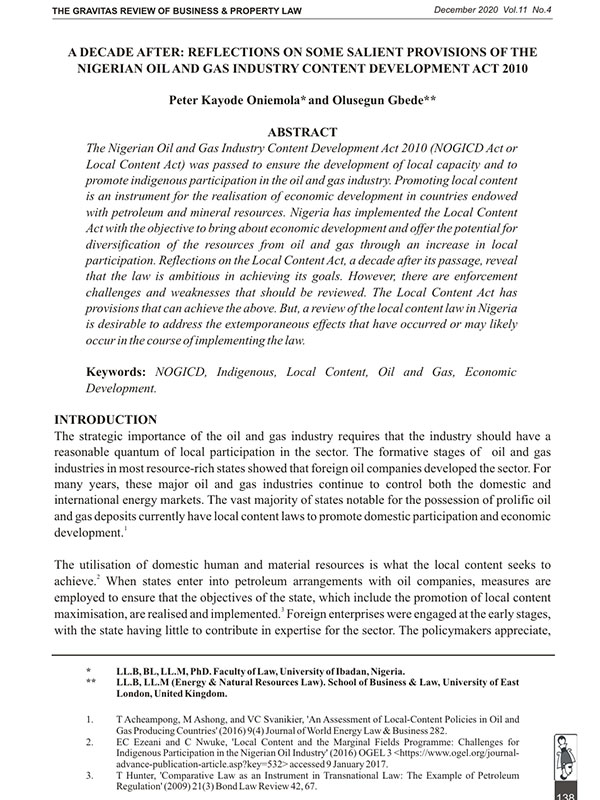
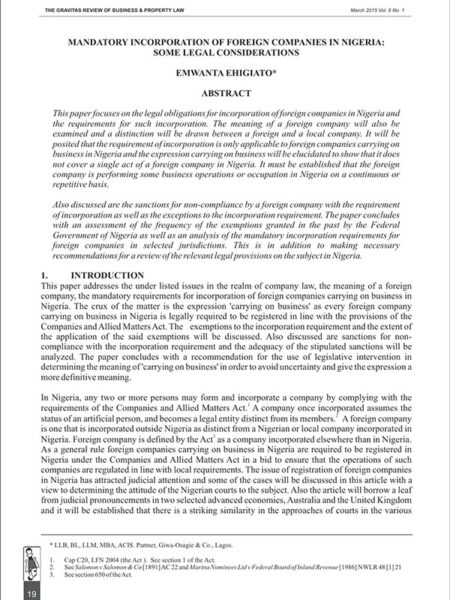
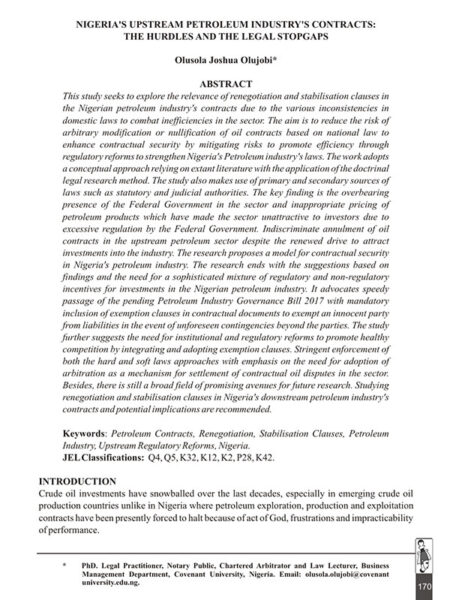
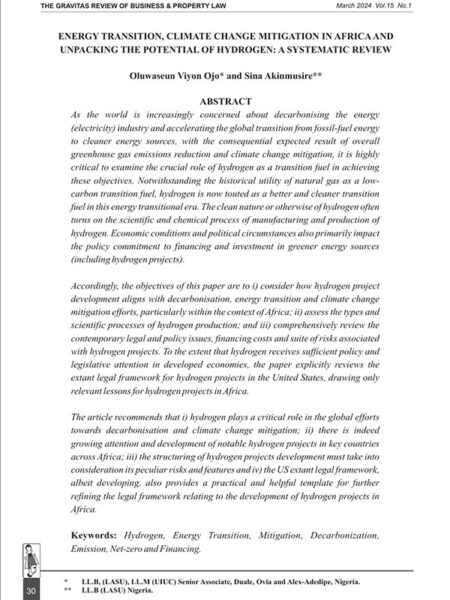
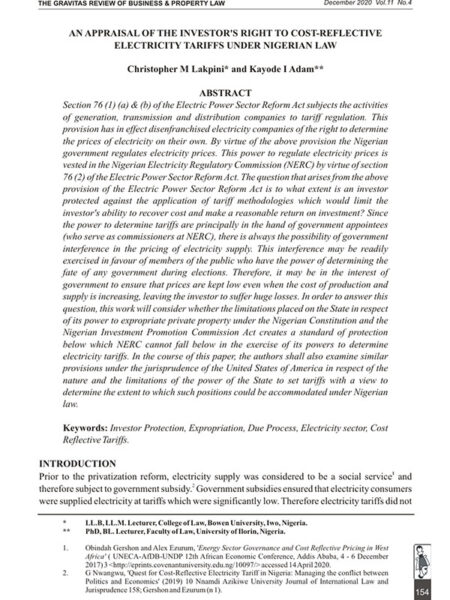


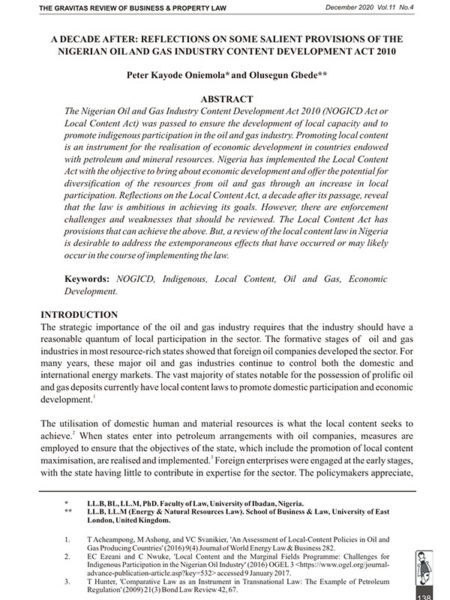
Reviews
There are no reviews yet.